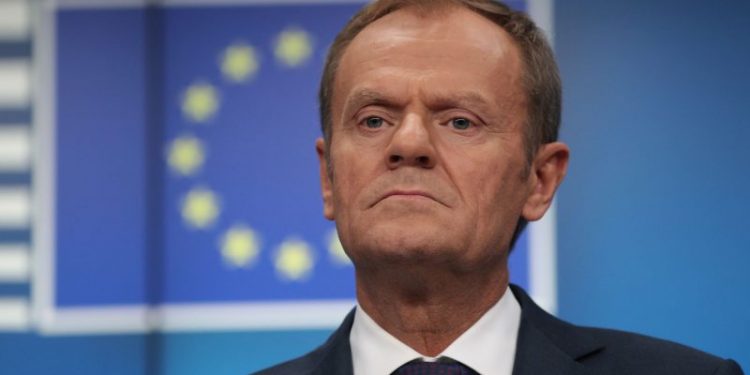Brussels: European Union (EU) leaders Friday failed to reach a deal on candidates for the bloc’s top jobs and announced that they will meet again on June 30 to seek an agreement. “There was no majority on any candidate… (The council) will meet again on the 30th of June,” European Council’s president Donald Tusk told a press conference after secretive huddles among member leaders.
The successor to European Commission President Jean-Claude Juncker as the head of the EU executive is the key leadership role in Brussels among others, Xinhua news agency reported.
Five years ago, a marathon negotiation lasted through the summer with a final decision reached in late August. Juncker finally claimed the EU throne with the help of the so-called “spitzenkandidaten system”.
Under the EU rules, the member countries should choose who will run the Commission and the European Parliament must endorse that choice.
The process is a procedure whereby European political parties, ahead of the European elections, appoint lead candidates for the role of the Commission President, with the presidency of the Commission then going to the candidate of the political party capable of marshalling sufficient parliamentary support.
However, the European elections in May greatly shifted Europe’s political landscape, with the traditional duopoly — the centre-right European People’s Party (Juncker is a member) and the centre-left Social and Democratic Group — losing their jointly enjoyed comfortable majority and consequently lowering the competitiveness of their lead candidates Manfred Weber and Frans Timmermans.
Shortly after Thursday’s working dinner, French President Emmanuel Macron said that the “lead candidates” of the three biggest pro-EU political families, namely Weber, Timmermans and Renew Europe’s Margrethe Vestager, had been eliminated from the race for Commission presidency.
According to German Chancellor Angela Merkel, Tusk reported there was no majority for any of the three candidates, but left open the possibility that the situation could change.
She admitted that the main centre-right and centre-left parties no longer control a sufficient number of seats in the Parliament to reach a deal and must now reach wider to form a pro-EU majority coalition, which will include at least the Liberals and probably the Greens.
Echoing Merkel’s words, Dutch Prime Minister Mark Rutte said that “there’s currently no majority for any of the leading candidates,” but this was only a “half-time score”.







































